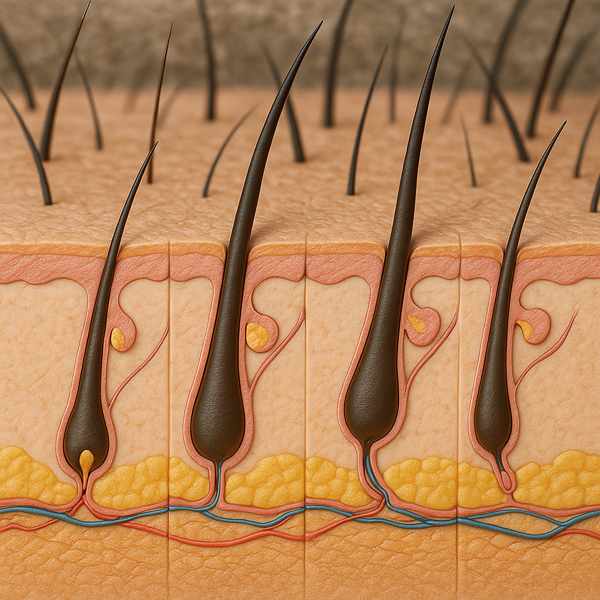
Many people notice their hair thinning during or after a weight loss journey, which can be alarming.
Understanding why this happens and how to protect your hair can help you reach your goals without compromising your confidence.
The Link Between Dieting and Hair Shedding
When your body undergoes a major change — especially fast weight loss — it can respond by pausing non-essential functions like hair growth.
Common causes include:
- Lack of protein, iron, or vitamins
- Extreme calorie restriction
- Hormonal imbalances
- Rapid weight loss
Understanding Telogen Effluvium
It’s a temporary condition where hair enters the shedding phase prematurely.
Key facts:
- There’s a delay between cause and effect
- No bald patches, just thinning
- Hair usually grows back with time
What Your Hair Needs to Thrive
If you're trying to lose weight, be sure not to miss these nutrients:
- Protein
- Iron
- Vital for cell renewal and keratin production
- Zinc
- Vitamin D
Skipping meals or using crash diets can easily lead to deficiencies that trigger hair loss.
Yes — With the Right Strategy
You don’t have to choose between losing weight and keeping your hair.
Tips include:
- Aim for 1–2 pounds per week
- Eat a nutrient-rich diet
- Especially during calorie restriction
- Both affect hormones and hair health
- Stay hydrated
How to Manage Hair Loss During Your Journey
If you notice excessive shedding:
- Don’t panic
- Get bloodwork done
- Focus on protein and iron intake
- Avoid tight hairstyles and harsh products
- Be patient
Getting Expert Help for Hair Loss
If hair loss continues beyond 6 months or worsens significantly, it's a good idea to consult a healthcare provider.
- A common cause of both weight and hair changes
- Can trigger more permanent forms of hair loss
- Severe nutritional deficiencies
Conclusion
Weight loss and hair loss can be connected, but they don’t have to be read more permanent partners.
Prioritize nourishment, patience, and consistency, and your body will thank you — from head to toe.